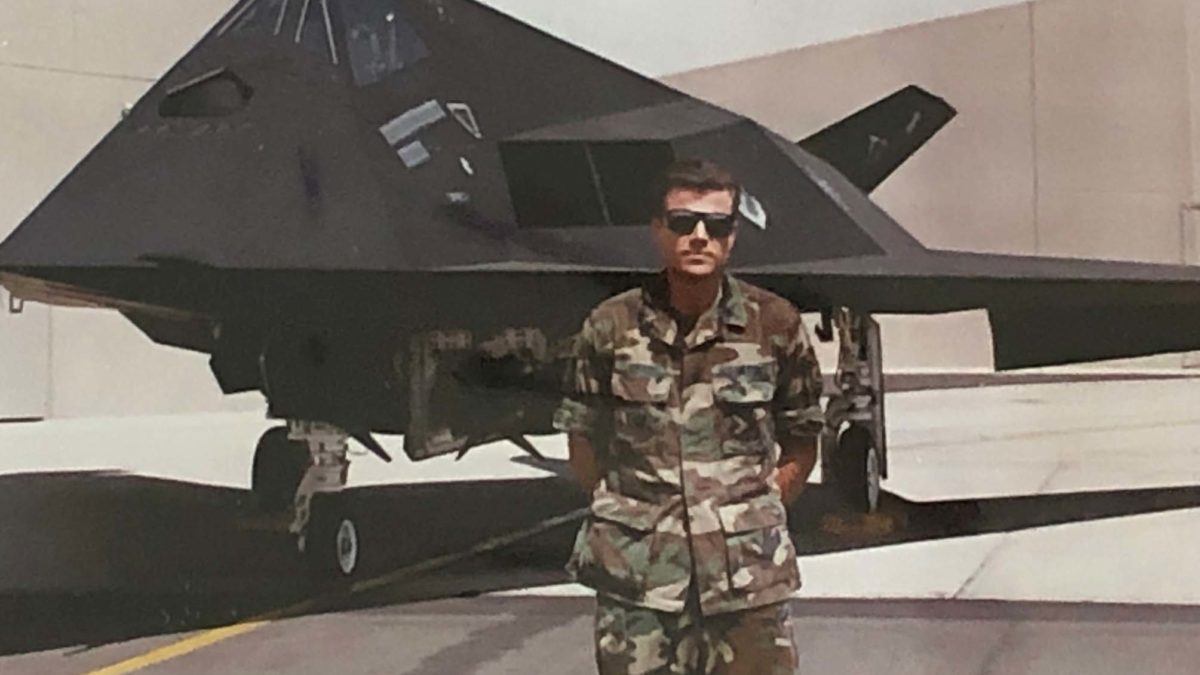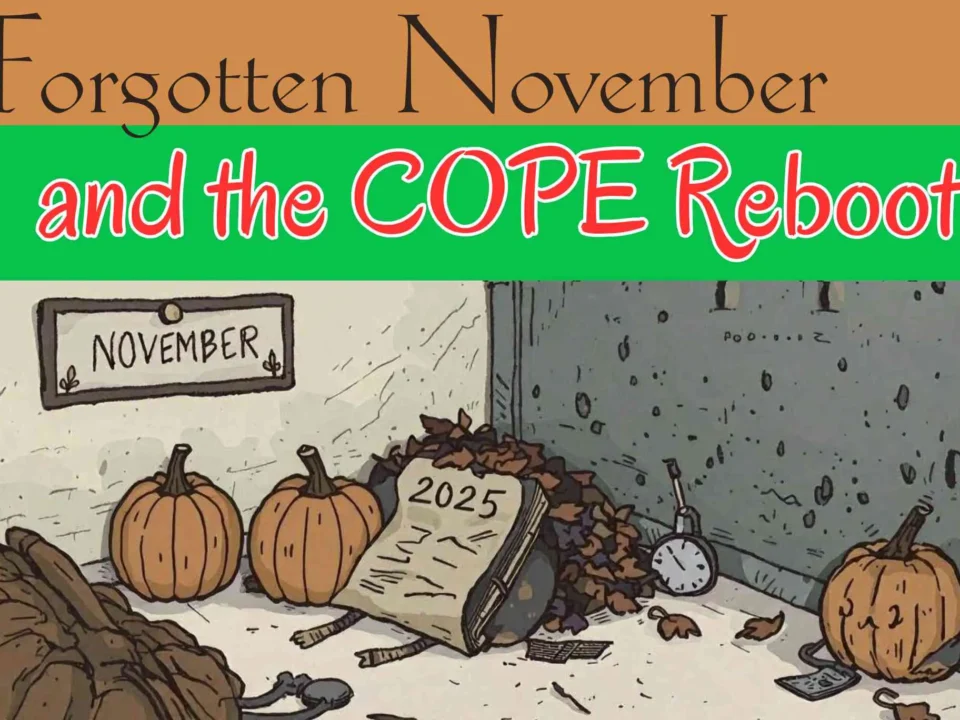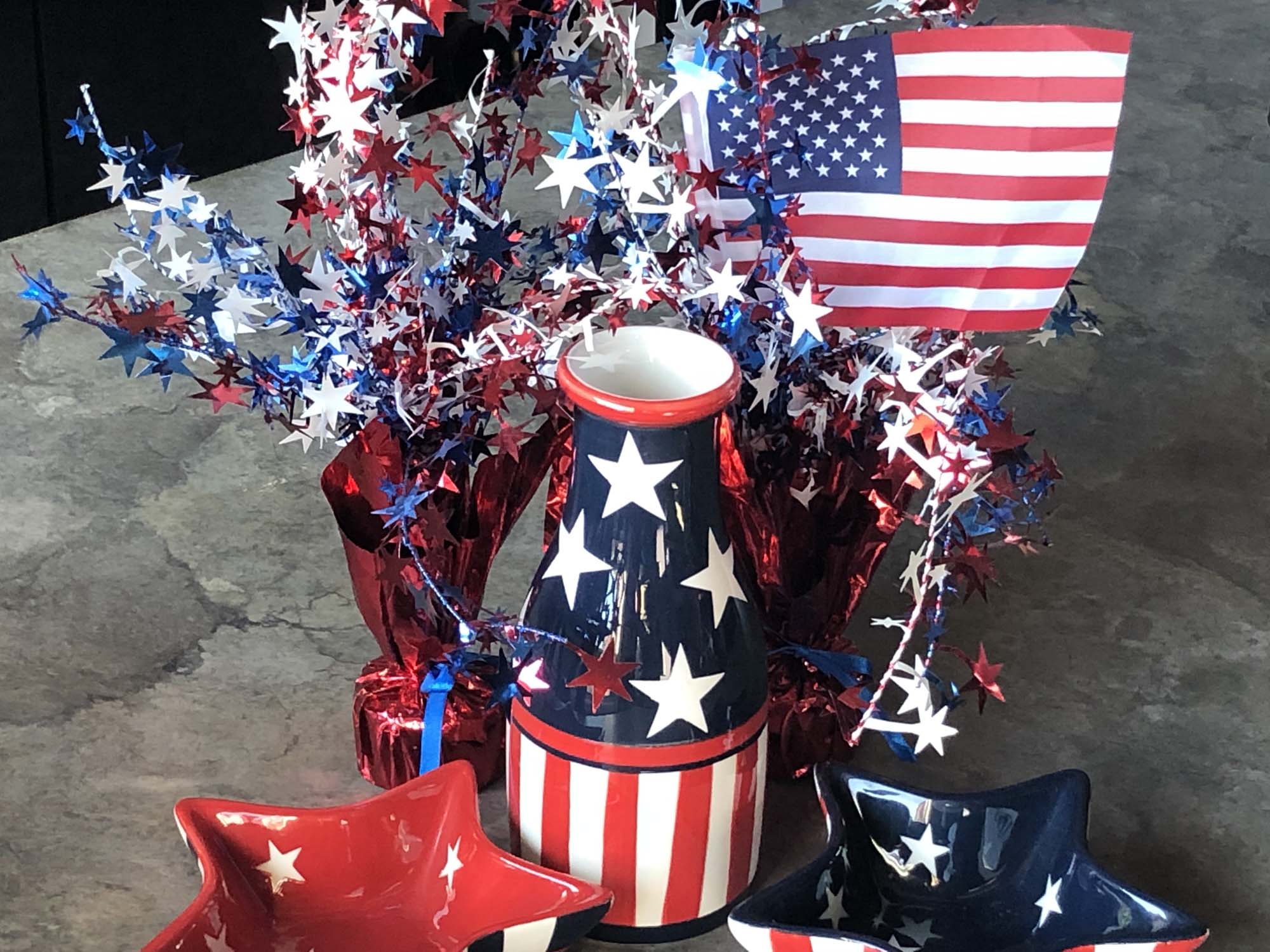
What Exactly Are You Saying?
June 29, 2020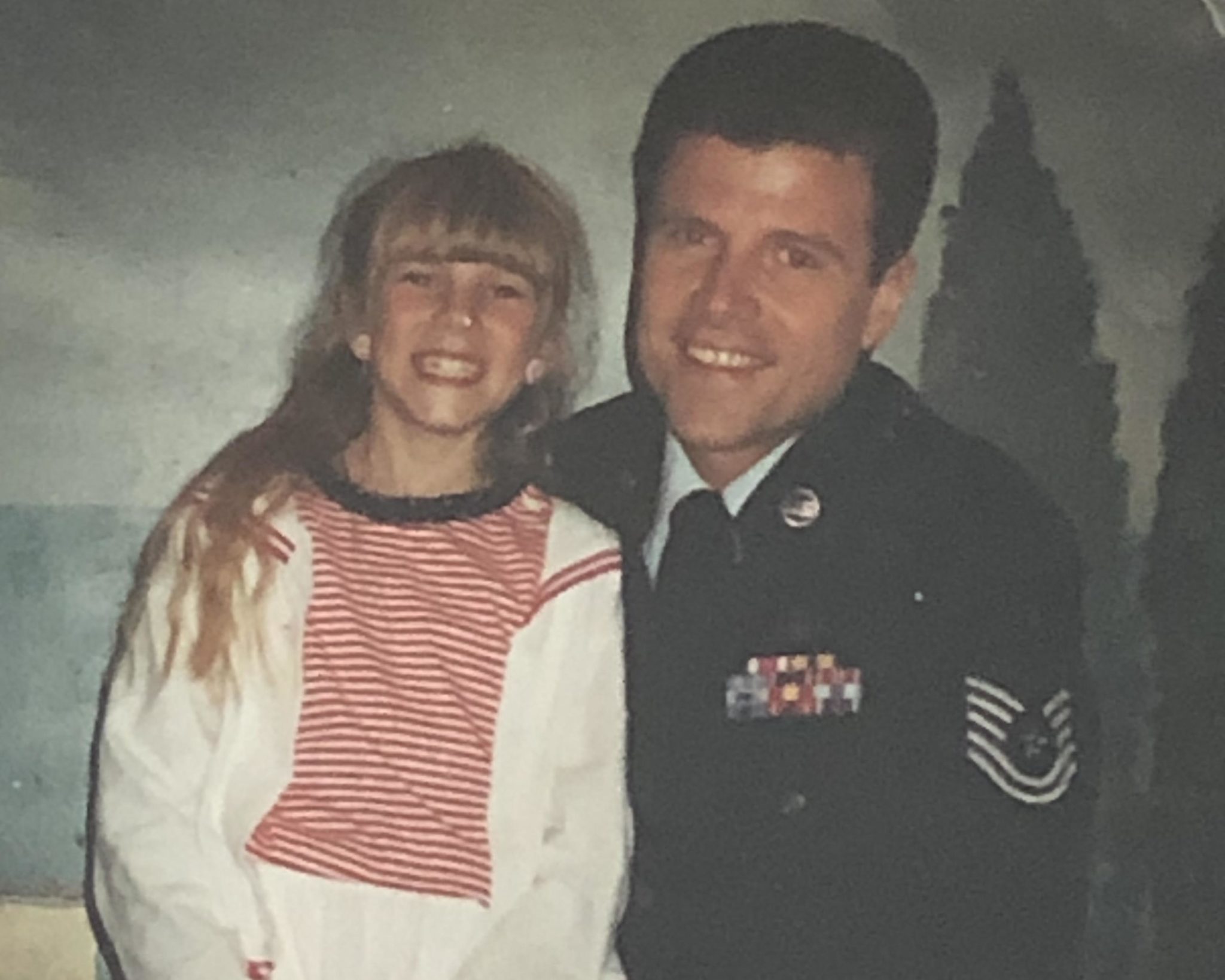
Lifetime Impact Part II: Rene’s Pen Pals from Desert Shield/Desert Storm
September 8, 2020It has been 30 years since my mother stopped frying my hair with home permanents, I quit wearing stone-washed jeans, and I began to say goodbye to blouses and jackets with shoulder pads.
1990. I was two years out of college, learning the ropes of corporate life, and determined to not give up my long frizzy locks for Demi Moore-style hair from the movie, Ghost.
Other than the after-effects of the reunification of Germany plus tragic airplane crashes here and there, the world seemed fairly tame to me. Then, Iraq unexpectedly invaded its neighbor to the south, Kuwait, on August 2, 1990, the culmination of years of territorial disputes over the tiny country.
All hell broke loose, including international condemnation and economic sanctions. A large coalition of allied countries, including the United States, began planning a massive response. A week later, my future husband, Rene (pronounced ree-nee), who was a Technical Sergeant in the Air Force, was part of the first wave of American military personnel to deploy. The codename for the deployment and preparation phase for what was assumed would be an eventual counter-attack was Operation Desert Shield.
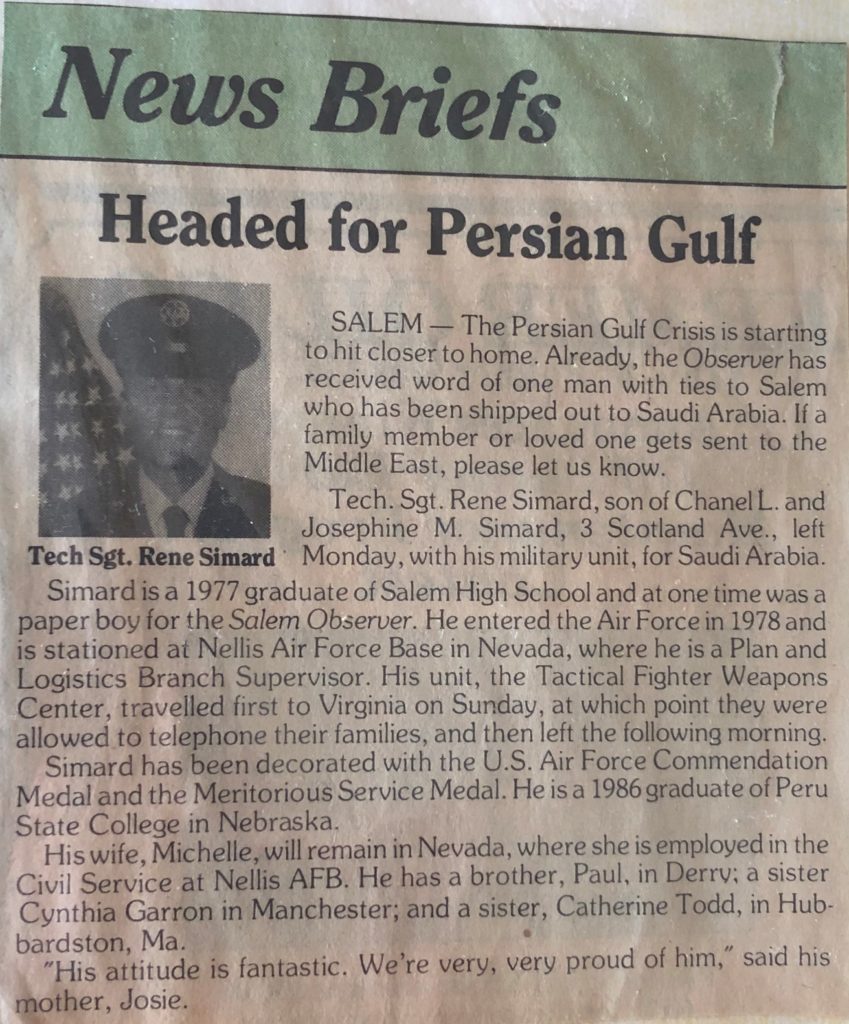
Rene, who I wouldn’t meet for another 13 years, had trained into logistics plans and deployed from his duty station at Tonopah Test Range in Nevada, the home of a wing of Lockheed F-117 Nighthawk stealth fighters. He, along with a squadron of pilots, maintainers, and other F-117 support staff, left scorchy south-central Nevada in early August for King Khalid Air Base near Khamis Mushait, a city in southwest Saudi Arabia. During flight, he was knees-to-knees with other troops seated in canvas face-to-face seats on a C-141 airlifter during their nearly two-day trip halfway around the world. They departed from Tonopah for Langley Air Force Base in Virginia, where they stayed overnight. From there it was on to Goose Bay, Canada; then Torrejón Air Base in Spain; on to Cairo, Egypt; and finally, to Khamis Mushait.
Although he dreaded making the call, before leaving Langley Rene phoned and told his parents in Salem, New Hampshire, that he was being deployed to the Middle East; however, he was not allowed to share any more details. When his father answered the phone, Rene knew right away by the sound of his voice that he was worried. Rene’s mother was emotional and couldn’t talk, and the last thing his father said before saying goodbye was that they would be praying for him.
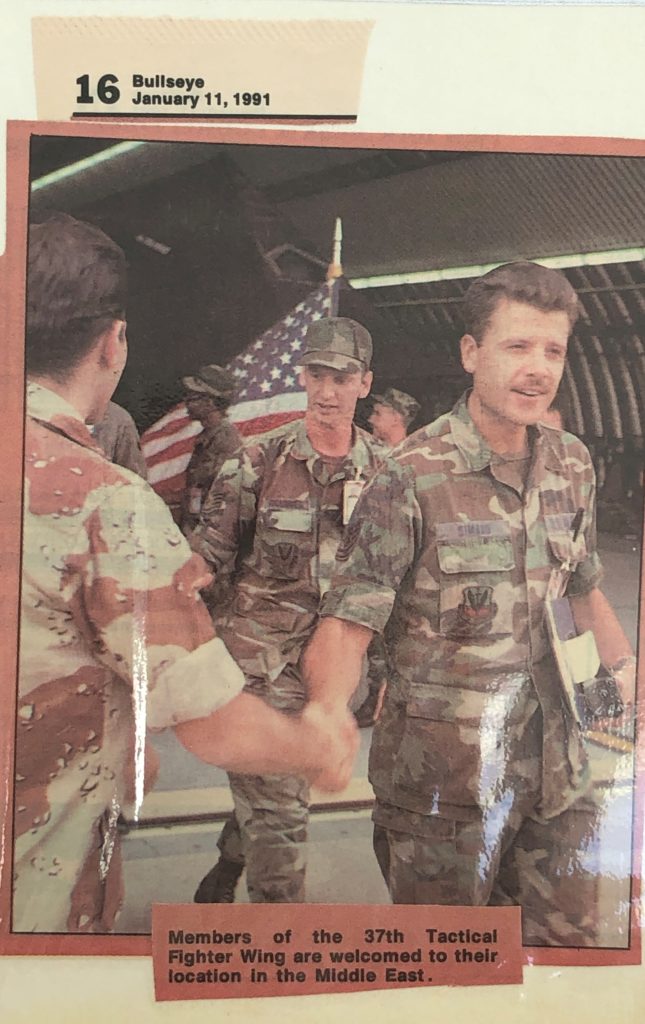
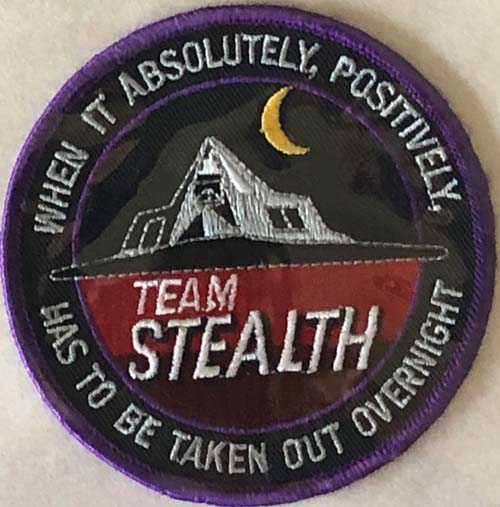
During the first few days at his new duty station, rumors were rampant that Iraq had chemical weapons, so Rene always had chemical gear at the ready. Thankfully, it was soon determined that chemical weapons from Iraq did not have the range to reach where Rene’s unit was located, although the hangars at King Khalid Air Base were designed to survive chemical attacks. “The facilities where we worked were extremely secure and even more modern and much more expensive than the F-117 hangars back at Tonopah,” he jokes. “The Saudis spared no expense.”
Despite his arrival in Saudi Arabia during the hottest part of summer, Rene says the weather in Khamis Mushait was similar to Tonopah, because both locations are at approximately 7,000 ft. elevation. Fortunately, all the buildings, including his residence, were air conditioned. Since he was raised in the city and is not a fan of snakes, he was glad he only saw one King Cobra while deployed, on the road in front of him while he was driving on the compound. The snake was so long it stretched across the entire width of the road, its head upright in classic striking position. King Cobras are the world’s longest venomous snake and can reach 18 feet in length, so Rene says he took special care to drive far around the slithery creature.
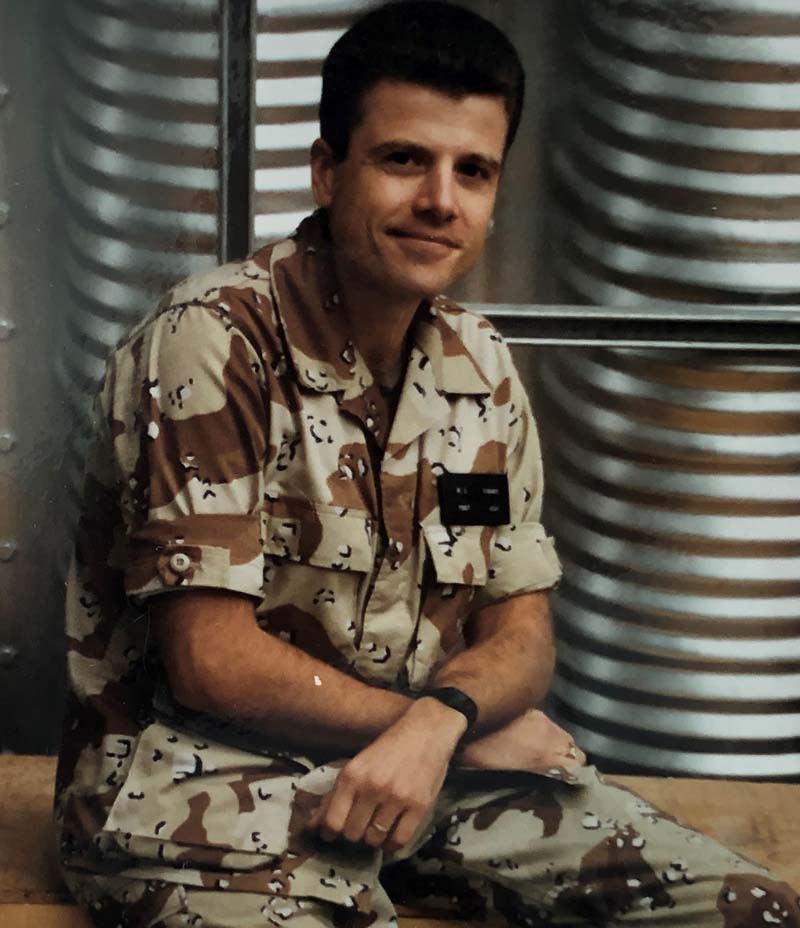
For the first few months, Rene and his colleagues ate “mystery meat,” but then American food and care packages began to arrive from home. He appreciated all the snacks, toiletries, and gum, and began to record messages for his family on cassette tapes that he mailed back to New Hampshire. Initially, Rene and 14 of his enlisted colleagues stayed in a house on base, and since he was among the highest-ranking enlisted troops, he shared a bedroom with three other Tech Sergeants—two of whom he’s still in touch with. Once the second wave of troops arrived, a tent was attached to the house for an additional 10 troops. All of them shared the same four bathrooms, which was manageable only because they worked different shifts.
Since alcohol is banned in Saudi Arabia, Rene, who is a self-proclaimed beer snob, had to endure an eight-month dry spell. His workdays were long, and after work he exercised to help pass the time, ultimately dropping about 20 pounds. But sometimes he and his buddies broke out the O’Doul’s non-alcoholic malt beverages, donated for the troops by Anheuser-Busch, while they played cards and dominos before turning in for the night. Unlike real beer, Rene said he could only drink two or three O’Doul’s at a time because they had no flavor, although he admits a couple times he felt like he was buzzed from O’Doul’s and the monotony of deployment.
There was, however, one incident when a relative of someone in his unit mailed a rum cake for Christmas, which surprisingly made it through the incoming mail sensors. “Someone told me, ‘You need to try this cake!’” he says. “It tasted really good, but it was like taking a shot of rum. So then of course I devoured the entire piece and got a little tipsy. That piece of rum cake actually helped me get into the Christmas spirit and allowed me to forget where I was, if only for a little while.”
Next time: Precious letters from devoted American schoolchildren, Rene’s mother spearheads a patriotic movement back in Salem, and the build-up to the invasion.
Sentimentally,

